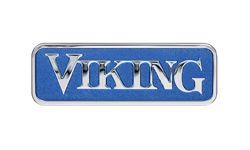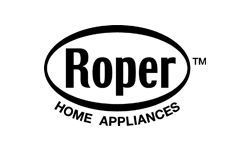Appliance Repair Tips
Astre Appliance Service
About Astre Appliance Service
Phasellus magna velit, mattis a tellus ut, sollicitudin commodo est. Curabitur tincidunt facilisis magna convallis convallis. Nulla sit amet tincidunt nibh, quis hendrerit sem. Pellentesque a orci eget ex semper lobortis. Phasellus fringilla lorem tincidunt ullamcorper luctus. Sed bibendum tempor sapien, in rutrum tortor pellentesque sed. Fusce pharetra lacinia eros in egestas. Pellentesque vitae facilisis lacus, in rutrum magna. Mauris ornare semper consectetur.

Professional Appliance Repairs With Incredible Warranties
Extending the life of your household appliances doesn't always require professional intervention—sometimes, a few simple maintenance practices can prevent common issues from escalating. Please refer to the following appliance repair tips before you attempt to repair your appliance including washing machines, dryers, and refrigerators:
- Make sure the appliance is plugged in and turned on
- If plugged into a GFI outlet, please ensure that it is not tripped
- Make sure the appliance is plugged in and no circuit breakers or fuses are blown
- If your appliance requires water, make sure the valves are all turned on
- Ensure all doors and top lids are closed fully to engage any switches
- Finally, please refer to the user’s manual to see if there are any manufacturer recommendations that will fix the issue
- Stove, oven, cooktop, or microwave repair tips
- Make sure the appliance is plugged in and turned on
- For microwaves, do not insert any metal objects
- Gas ovens and range, try to bake at a regular temperature of 350 degrees to avoid cycling the igniter
- For electric ovens, try not to spill onto the element so as not to short it out
By implementing these preventative measures, you'll not only save money on potential repairs but also maximize the efficiency of your appliances, keeping them running smoothly for years to come. Questions about appliance repair? Check the Astre Appliance Services FAQs below and contact us to schedule your repair.
Title or Question
Describe the item or answer the question so that site visitors who are interested get more information. You can emphasize this text with bullets, italics or bold, and add links.Title or Question
Describe the item or answer the question so that site visitors who are interested get more information. You can emphasize this text with bullets, italics or bold, and add links.Title or Question
Describe the item or answer the question so that site visitors who are interested get more information. You can emphasize this text with bullets, italics or bold, and add links.
Why is my dishwasher making a grinding noise?
A grinding noise from your dishwasher can be concerning, but it's often caused by a few common issues. These include food or debris stuck in the motor, worn motor bearings, loose installation, broken or cracked impellers, or low water spray pressure. While these noises might be normal in some cases, especially if your dishwasher has a built-in food grinder, persistent or unusually loud grinding should be investigated.How can I fix the grinding noise in my dishwasher?
To address a grinding noise in your dishwasher, you can try several troubleshooting steps. These include checking and cleaning the filter, interrupting the cleaning cycle to inspect for debris, disassembling the spray arm assembly, running the dishwasher empty, replacing broken or damaged parts, consulting your service manual, and if necessary, hiring a qualified appliance repair technician. These steps can help you identify the source of the grinding noise and determine whether it's a simple fix or requires expert attention.Why does my washer smell like mold?
Washers, especially front-loading models, can develop a moldy smell due to several factors. These include trapped moisture from closing the washer door after a cycle, wet clothes left too long in the machine, uneven flooring causing improper drainage, liquid fabric softener buildup, and frequent cold water washing. These conditions can lead to mold growth in hidden areas like the gasket, soap dispenser, and drum, resulting in unpleasant odors.How do I get rid of mold smell in my washer?
To eliminate mold smell in your washer, you can take several steps. These include wiping down the door and gasket after each use, cleaning the soap dispenser, properly washing moldy clothes, cleaning the washer tub with vinegar or specialized products, using mold-fighting products, leaving the door open when possible to air out the washer, and switching to he detergent for high-efficiency washers. These methods can help remove existing mold and prevent future growth.




















